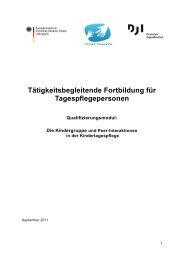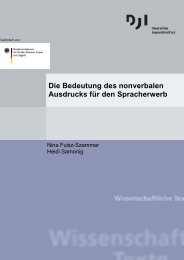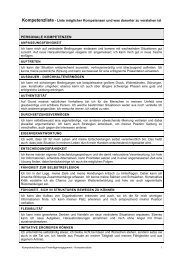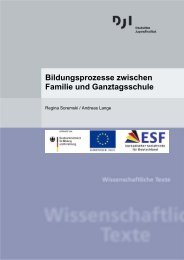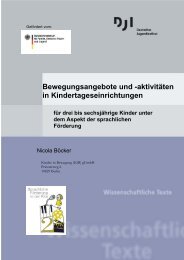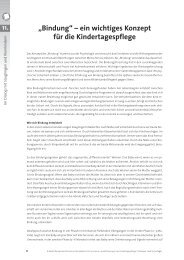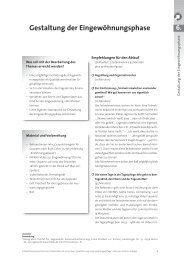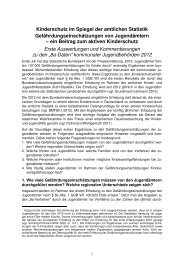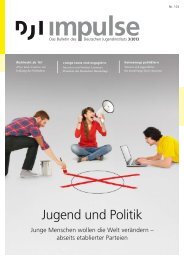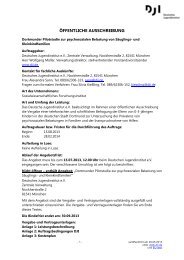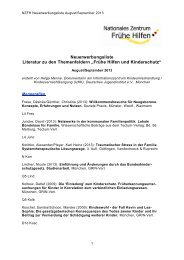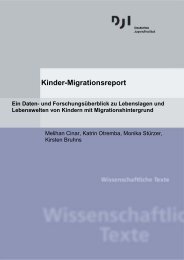download - Deutsches Jugendinstitut e.V.
download - Deutsches Jugendinstitut e.V.
download - Deutsches Jugendinstitut e.V.
Create successful ePaper yourself
Turn your PDF publications into a flip-book with our unique Google optimized e-Paper software.
Presentation Ireland<br />
Dr. Dermot Stokes, National Coordinator,<br />
Youthreach<br />
Stephen McCarthy, Education Officer, City<br />
of Dublin VEC;<br />
Angelique Kelly, Coordinator, Crumlin<br />
Youthreach, Dublin 12;<br />
Christina Carolan, former Youthreach<br />
participant<br />
v. l.: D. Stokes, St. McCarthy, C. Carolan, A. Kelly<br />
“Youthreach” – Qualification and employment programme for<br />
disavantaged young people<br />
Employment context<br />
The last fifteen years have seen a profound change in the Irish economy. Where there was<br />
high unemployment, low expectations and endemic, structural emigration of both high and<br />
low skilled people now there is low unemployment, high expectations and substantial<br />
inward migration. A high percentage of the labour force has 3rd level qualifications but<br />
there is also a high percentage with lower secondary education or below. The labour force<br />
also has low levels of adult literacy, especially amongst older workers, there is poor<br />
participation in continuing education and training and skills shortages are evident in some<br />
sectors. These are largely being filled through high skilled immigration. There are an<br />
estimated 280,000 non-Irish nationals aged 15 and over in Ireland. The forecast inward<br />
migration is 55,000 in 2007. It is estimated that Ireland will need 950,000 extra new<br />
workers between 2006 and 2020 and 310,000 of these will come from inward migration.<br />
In 2007 the Expert Group on Future Skill Needs published its report Tomorrow’s Skills:<br />
Towards a National Skills Strategy. In order to become a new knowledge economy which can<br />
compete effectively in the global market place, Ireland requires to enhance the skills of the<br />
resident population, increase participation in the workforce and continue to attract highly<br />
skilled migrants. It is now policy to raise the qualifications of the workforce in general by<br />
one level of the National Framework of Qualifications (NFQ, www.nqai.ie).<br />
However, it is also acknowledged that the strong demand for low skilled jobs is<br />
currently contributing to educational under-achievement by encouraging individuals into<br />
employment rather than continuing in education.<br />
Early School leaving and the Youthreach programme<br />
Our presentation focuses on the Youthreach programme which is the principal national<br />
response aimed at those who have left school early.<br />
If we take the cohort born in 1990, and in Ireland that would be around 55,000 children,<br />
1.5 % of that cohort will leave education straight from primary school; 3.5 % will leave<br />
post-primary with no qualifications; 18-19 % will leave school with less than upper<br />
secondary and 25 % will leave the school system with less than 5 D grades from the<br />
Leaving Certificate. These are robust figures which have, despite substantial spending on<br />
prevention of early school leaving, held steady for a decade.<br />
29



